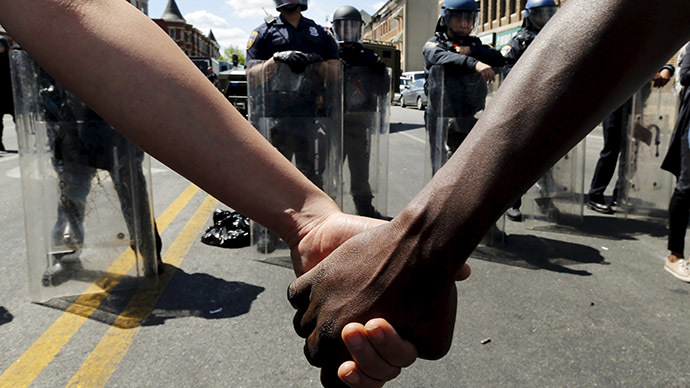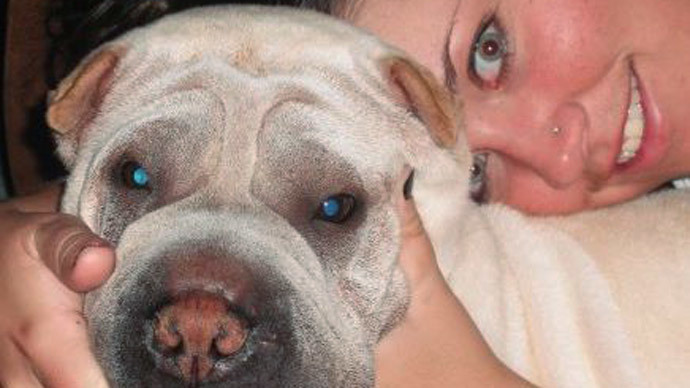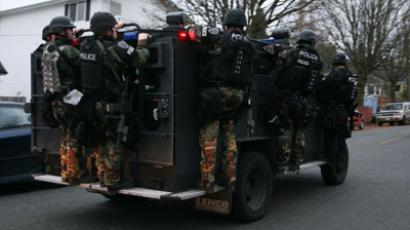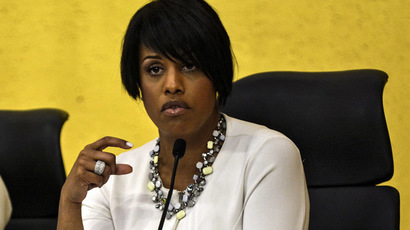Baltimore: Long history of conflicts btwn police, residents

The death of Freddie Gray kicked off protests and riots across Baltimore, Maryland. But reports and lawsuits show a trend of city police brutally mistreating residents, especially those in the poorer communities. The city paid millions in settlements.
Gray was the second person to die in Baltimore PD custody in 2015. In February, Trayvon Scott, 30, died after showing distress while in a holding cell at the Northern District police station on Valentine’s Day. Police said no force was used in Scott's death, according to the Baltimore Sun. An initial examination by the medical examiner indicated that a pre-existing medical condition was to blame.
Pain in #Baltimore runs much deeper than #FreddieGray's death. Riots come from youth w no opportunities. My report: http://t.co/onTYsbI0jf
— Anya Parampil (@anyaparampil) April 28, 2015
Over the course of nearly four years, Baltimore paid some $5.7 million to more than 100 people in court judgments or settlements for lawsuits claiming police brutality and civil rights violations, the Sun reported after conducting a six-month investigation. Payouts were capped at $500,000 per case, unless there were extenuating circumstances like multiple victims or actual malice. The city paid an additional $5.8 million in legal fees in defending the police in those cases.
“One hidden cost: The perception that officers are violent can poison the relationship between residents and police,” the Sun’s Mark Puente wrote.
A series of lawsuits
Victims include a 15-year-old boy riding a dirt bike, a 26-year-old pregnant accountant who had witnessed a beating, a 50-year-old woman selling church raffle tickets, a 65-year-old church deacon rolling a cigarette and an 87-year-old grandmother aiding her wounded grandson.
“Those cases detail a frightful human toll,” Puente wrote. “Officers have battered dozens of residents who suffered broken bones – jaws, noses, arms, legs, ankles – head trauma, organ failure, and even death, coming during questionable arrests. Some residents were beaten while handcuffed; others were thrown to the pavement.”
Most of the victims were African-Americans, and in almost every case the charges against the arrestee were dropped ‒ if charges were filed at all. Some of the officers were the target of as many as five lawsuits. The Sun investigation looked at suits with payouts between January 2011 and September 2014.
This is what I mean by apartheid policing. We spend more to harass & incarcerate than we do on health, housing, arts, and parks combined.
— Lawrence Brown (@BmoreDoc) April 28, 2015
“These officers taint the whole department when they create these kinds of issues for the city,” City Council President Bernard C. "Jack" Young told the Sun in September. “I’m tired of the lawsuits that cost the city millions of dollars by some of these police officers.”
But Robert F. Cherry, president of the city’s Fraternal Order of Police lodge, defended the Baltimore PD, calling some of the lawsuits frivolous.
“Our officers are not brutal,” he said. “The trial attorneys and criminal elements want to take advantage of the courts.”
Police brutality and officer-involved deaths
The deaths of 31 people after encounters with Baltimore PD officers might dispute Cherry’s claim that the department’s cops ‒ at least some of them ‒ are not brutal.
According to an American Civil Liberties Union (ACLU) of Maryland report, 31 people in Baltimore ‒ out of 109 total in the state of Maryland ‒ died after interacting with police between 2010 and 2014. Statewide, nearly 70 percent of the victims were black, and more than 40 percent were unarmed.
READ MORE: Off-duty Baltimore cop shoots woman, takes child hostage before SWAT standoff
Just over two years ago, James Smith, a veteran off-duty Baltimore police officer with tactical training, barricaded himself inside a house after shooting his fiancée, Kendra Diggs, from an upstairs window as she stood on the sidewalk talking to police officers who had responded to the home. Smith’s 4-year-old son was later taken from the home by police while Smith remained holed up inside during the multi-hour standoff in May 2013.
Diggs later succumbed to her injuries, and Smith ‒ a 20-year police veteran who also served in the military ‒ was charged with first-degree murder and a handgun violation. He hanged himself in jail before he could stand trial, the Sun reported.
In June 2014, Baltimore PD Officer Jeffrey Bolger was charged with felony animal cruelty for slitting the throat of a restrained dog, while Officer Thomas Schmidt was suspended for helping. Bolger also threatened to gut the dog, witnesses said.
“I’m going to [f--king] gut this thing,” witnesses heard Bolger say as he got out of the police vehicle, according to the charging document.

"It was a complete violation of protocol," BPD spokesman Eric Kowalczy said. "It's not often police speak out against one of their own, but we are all truly appalled."
BPD Deputy Commissioner Dean Palmere called the incident “outrageous and unacceptable” at a news conference. “Officers were appalled by what they saw, as were other citizens,” he said.
That same month, video captured Officer Vincent Cosom repeatedly beating Kollin Truss, while another officer held Truss’s arm as the blows were delivered to his head and torso. Cosom punched Truss six times.
Truss was charged with assaulting an officer, but prosecutors dropped the charges after seeing the video, which was released to the public in September. Truss filed a $5 million suit against Cosom, whom he also accused of falsifying the police report about the incident.
“The question that arises is why didn’t they pursue charges against the officer? It’s known the officer gave the report under penalty of perjury, and those other officers sat and watched, did nothing and perhaps wrote similar reports,” Truss’ attorney Tony Garcia said.
Other members of the department were involved in the death of a teenager a month prior to the the beating of Truss. An altercation in May 2014 between a 19-year-old George V. King and hospital security staff turned deadly when Baltimore police arrived at the scene and used a Taser on the teen.
King ‒ described by police as a “ward of the state” ‒ was locked in a physical struggle with “at least five security guards” and was suffering from an “emotional crisis” when two officers arrived, Kowalczyk said. One of them used a Taser on the 19-year-old, ultimately sinking the teenager into a coma. Police said the patient had been given unknown amounts of medication before law enforcement arrived and while they were at the scene.
The city prosecutor’s office declined to bring a criminal case against the officers, ruling that the use of Tasers and other physical means to restrain King did not cause him to lapse into the coma.
“Given the already strained relationship between officers and community residents, that finding is bound to feed into complaints of excessive use of force by Baltimore police and fuel charges that the department is out of control,” the Sun’s editorial board wrote in an October op-ed.
Police fight against recordings
Along with the 317 lawsuits filed over police conduct ‒ such as assault, false arrest and false imprisonment ‒ between 2011 and September 2014, residents also sued police for First Amendment violations.
The ACLU of Maryland sued the Baltimore PD on behalf of Christopher Sharp, who had his cell phone confiscated and all of its contents destroyed after he filmed police use excessive force on a friend of his during the 2010 Preakness Stakes horse race. As an unnamed female friend was cuffed as she laid belly-down on the floor of the Pimlico Race Course, Sharp hit record on his cell-phone camera to capture the woman bloodied and beaten by a slew of cops. The BPD demanded that he turn the “evidence” over on the spot, only for them to erase the information, however. They also erased personal recordings of the man and his young son that was accumulated over the course of a year-and-a-half.
The city settled the case with Sharp in March 2014, issuing a formal written apology from the police commissioner and creating a new department policy that explicitly gives citizens the right to record city officers, WJZ reported. Sharp received a $25,000 payout, and Baltimore also paid his $220,000 in legal bills.
“I think it’s pretty clear people have the right to film what we do. You guys are doing it right now so it should be a norm for this organization,” Baltimore Police Commissioner Anthony Batts said at the time.
Despite the new policy, that same month Kianga Mwamba, 36, was tased and arrested after she stopped to video police officers kicking a handcuffed man. After she was released, she noticed someone had tampered with her mobile phone – erasing the arrest video. Charges against her were eventually dropped in September, but Mwamba served the police department with a lawsuit seeking $7 million in December.














